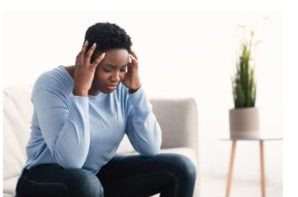
In my experience as a therapist, Simone’s story closely aligns with the experiences of many clients that I have worked with: those who experience Black superwoman syndrome (BSS). BSS also known as the strong black woman schema, can be seen as the black woman believing that she must be strong, and thus not vulnerable, at all times in order to be safe and successful. With BSS, there is a commitment to appearing strong, suppressing emotions, feeling obligated to help others, and succeeding with limited resources. Black women, who have historically been seen as the ones who “get things done” have also been expected to do these things with little regard for their own well-being.
On the one hand, being labeled as superwoman, or super strong like Simone Biles, might be seen as an asset. Black women can have a unique level of resiliency based upon the need to find a solution on their own-a strength that perhaps needed to be created for the black family and lineage to survive historically. However, that expectation that one must always be this “strong black woman” can also increase stress levels to toxic levels and contribute to numerous physical and mental health issues such as cardiovascular disease as well as anxiety and severe depression. In fact, cardiovascular disease kills about 50,000 African-American women annually (Heart Disease in African American Women | Go Red for Women).
So, when given the chance to be considered “strong” or choosing our health, which one should we choose? What cost do we pay when we sacrifice our own well-being for the positive regard of others?
Here are a few costs to consider. To start, we lose stamina when we don’t allow ourselves to rest-none of us have an endless supply of energy, and strength needs energy in order to sustain itself. To say that she should be strong enough to just work through it goes against what we know about how a human body operates. Secondly, it reinforces stereotypes that put us all in danger of receiving toxic levels of stress that can impact our health. In a country that has inequitable access to quality healthcare, and high mortality rates for black people, we may not be able to trust that we have a safety net should we choose to sacrifice our health, which makes it even more important that we value our own health.
Chante’ Gamby is a writer passionate about social justice and empowering others to live their healthiest lives. You can follow her on Facebook at Fringefam, Instagram@fringegram, or on her website, www.fringefam.com.

